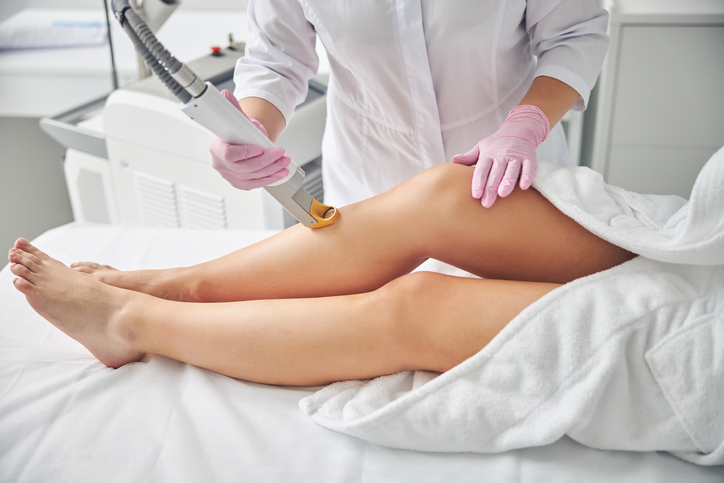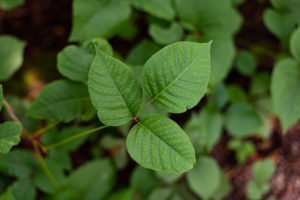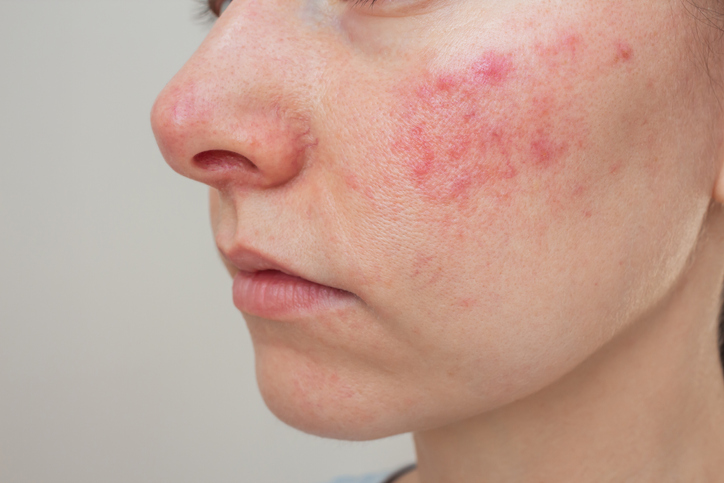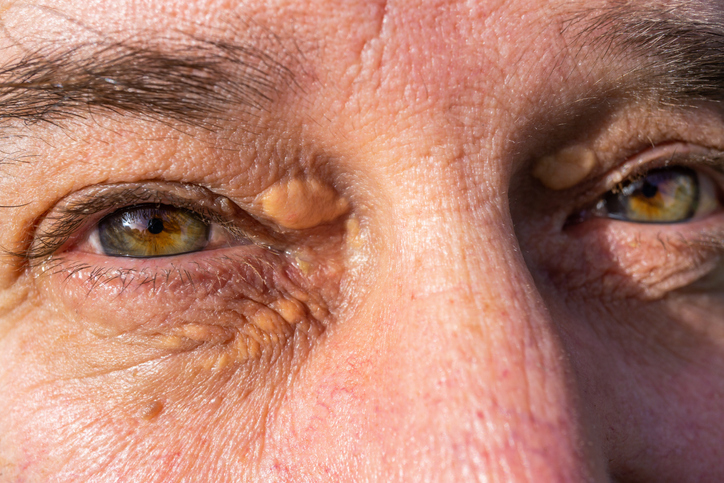
The evolution of intense pulsed light
Intense pulsed light (IPL) has become a staple in beauty salons and dermatology clinics. Learn how it works for hair removal, acne management, and more.
Dr Michael Rich is a specialist dermatologist who has been performing tumescent liposuction for over 30 years. Find out if Liposuction is suitable for you at ENRICH Clinic.
At ENRICH Clinic, we have a wide range of dermatological and cosmetic body treatments tailored to individual body and patient needs.
At ENRICH Clinic, our treatments are performed by our medical team consisting of doctors, nurses, and dermatologists and are tailored to each patient’s skin health needs.
ENRICH Clinic is committed to your skin health and well-being with a range of dermatological & cosmetic treatments tailored to the individual. Our treatments are performed by our medical team consisting of doctors, nurses, and dermatologists.
Skin health is essential for everyone. ENRICH Clinic has a wide range of technologies and dermatological solutions to help you achieve your skin care goals.
If you’re wondering, “Why is my skin suddenly itching all over?” You’re not alone. Itchy skin is a condition we’ve all faced at some point. It can range from a mild annoyance to a significant discomfort that disrupts our daily lives. While it’s usually nothing serious, sometimes it can be a sign of a bigger health issue.
Itchy skin, or ‘pruritus’, can be caused by many different things – from the weather to allergies or even more complex health problems. Understanding what’s behind that itch is vital to finding the right way to treat it.
Dermatitis is a general term for skin inflammation. It can cause an itchy rash or red, swollen skin. There are different types, like atopic dermatitis (eczema), contact dermatitis (from touching irritants), and seborrheic dermatitis (often affects the scalp).
Each type has its triggers, such as hot/cold temperatures, irritants and microbes, but all result in itchy skin.
Dry skin, known as xerosis, happens when your skin lacks moisture. It’s pervasive in areas with low humidity or during the colder winter months when the air is drier both outside and inside due to heating systems. This dry air can strip moisture from your skin, leading to dehydration and itching.
Cold temperatures also contribute by reducing the skin’s natural oil production, which is essential for retaining moisture and protecting the skin barrier.
The tendency to take hot showers or baths in winter can further remove natural oils from the skin, worsening the dryness.
Allergies are another common cause of itchy skin. Various allergens like food, medications, latex, nickel, or certain chemicals in cosmetics or personal care products trigger it.
When your body encounters an allergen, it can react by releasing histamines, leading to symptoms like inflammation and itchy skin.

The environment has a significant impact on skin health. In Australia, where the climate and natural surroundings are quite diverse, several environmental factors can cause skin irritation and itchiness.
Intense UV rays, for example, can dry out our skin, making it itchy and irritated. Insect bites are another common culprit, especially in areas near water or bush.
Australia is also home to various plants that can cause skin reactions, like poison ivy. Contact with it can result in an itchy rash.
Sometimes, itching sensations can be caused by issues with the nervous system, a condition known as neuropathic itch. This type of itch happens when there’s a problem with the nerves themselves. Nerve irritations, shingles, or peripheral neuropathy due to diabetes are common causes of neuropathic itch.
Certain internal diseases like liver disease, kidney failure, or thyroid problems can cause itching. This itching occurs due to the way these diseases affect the body’s normal processes and lead to a buildup of toxins.
For instance, when the liver is not functioning properly, it struggles to filter out toxins from the blood. These toxins can accumulate in the body and cause symptoms, including itching.
When you’re dealing with stress or mental health issues like anxiety or depression, these can show up in physical ways, including causing your skin to itch. This is because stress can alert your body to sensations, turning even a tiny itch into something much more noticeable. Sometimes, you might start scratching without even realising it, especially if you’re nervous or anxious, which can worsen the itchiness.
Depression can also affect your skin. It might change how you care for yourself, including your skincare routine, leading to dry and itchy skin. Plus, some medicines for treating depression and anxiety can have side effects that include making your skin itch.
When you’re not getting enough of certain nutrients, like vitamins, iron, and fatty acids, it can lead to itchiness. Your skin needs a range of nutrients to stay healthy, and a deficiency in these can affect your skin’s health.
For example, Vitamin A helps repair skin tissue, and a lack of it can lead to dry, itchy skin, while the lack of adequate iron in your diet affects your skin’s oxygen supply, leading to poor health. Fatty acids, especially omega-3 and omega-6, play a vital role in maintaining the health of your skin’s lipid barrier. This barrier helps retain moisture and protect your skin from irritants. A deficiency in these fatty acids can lead to dry skin prone to itching.
It can be uncomfortable and puzzling when you suddenly start experiencing itchiness. Here are some steps you can take to determine what might be causing your itchy skin so you can get the proper treatment:
First, take a close look at the itchy area. Is the skin dry, red, or swollen? Are there any rashes, bumps, or blisters? The appearance of the skin can give clues about the cause. For example, a red, bumpy rash might suggest an allergic reaction, while dry, flaky skin could indicate xerosis (dry skin).
Think about any recent changes in your life that could affect your skin. Have you started using new skincare products, detergents, or cosmetics? Have you been exposed to new environments or substances, like chlorine in a swimming pool or a new sunscreen brand? Sometimes, the cause of itchiness can be traced back to a recent change in your environment or products you use.
Try to recall when the itchiness started and what you were doing then. Did it begin after you ate a certain food, used a particular product, or visited a specific place? Also, consider if the itchiness worsens at certain times of the day or in particular situations, like after a shower or during the night. Nocturnal pruritus can be caused by either the natural change in our circadian rhythm or bed bugs!
Symptoms like fatigue, weight changes, or digestive issues can be relevant. For example, if you’re also feeling exhausted, it could be a sign of an internal condition like a thyroid problem or iron deficiency.
If you suspect a particular product is causing the itchiness, you can do a patch test. Apply a small amount of the product to a discreet area of your skin and wait 24 to 48 hours. If the skin becomes itchy or irritated in that spot, you might be allergic or sensitive to the product. Otherwise, your itchy skin is caused by something else.
Record what you eat, the products you use, your activities, and when you experience itchiness. Over time, this record can help you and your healthcare provider identify patterns or triggers for your skin reactions.
If your itchiness is constant and doesn’t go away with over-the-counter treatments or home remedies, seeing a doctor is a good idea. Persistent itchiness, especially if it’s severe and interferes with your daily activities or sleep, could indicate an underlying health issue like eczema, psoriasis, or internal diseases.
If your itchy skin is accompanied by more severe symptoms, such as significant swelling, hives, or difficulty breathing, seek medical attention immediately. These could be signs of a severe allergic reaction, known as anaphylaxis, which is a medical emergency. Other severe symptoms to watch out for include rapid heartbeat, dizziness, or a feeling of tightness in the chest.
If you’ve been scratching the itchy area and notice signs of infection, such as increased redness, swelling, warmth, or tenderness, or if the area starts to ooze pus, it’s important to consult a healthcare professional. An infection may require treatment with antibiotics or other medications.
Dealing with uncontrollable itching all over your body can be extremely uncomfortable and frustrating. Here are some strategies for immediate relief and long-term solutions:

Applying a damp cloth to itchy areas can provide quick relief. The cold helps reduce inflammation and numbs the skin, which can lessen the itchy sensation.
Various creams and ointments are available to help soothe itchy skin. Look for products containing hydrocortisone, calamine, or menthol.
If your itchiness is due to an allergic reaction, over-the-counter antihistamines can help. They work by blocking the action of histamine, a chemical in the body that contributes to allergic symptoms, including itching.
Oatmeal contains compounds that have anti-inflammatory and antioxidant properties. These compounds help soothe and reduce redness and inflammation in the skin, alleviating itchiness. It also has a high lipid and protein content, which can help to nourish and moisturise the skin. This is particularly beneficial for dry, itchy skin, as it helps to restore the skin’s natural barrier, preventing further moisture loss and protecting against irritants.
To create an oatmeal bath, add 1 cup of finely ground whole oats to lukewarm bathwater and soak for 15-20 minutes. Moisturise immediately after bathing.
Tight clothing can irritate your skin and make itching worse. Wear loose, comfortable clothes made from soft fabrics like cotton. Avoid wool and synthetic fabrics, as they can be more irritating to the skin.
If your itching persists or you suspect it’s a symptom of an underlying condition, it’s important to see a healthcare professional. A dermatologist or allergist can help diagnose the cause of your itchiness and recommend appropriate treatments.
Altering your daily habits can be effective in controlling and preventing itchy skin. Changes include ensuring you drink plenty of water, using a humidifier to maintain moisture levels in your environment, opting for shorter, cooler showers or baths, and choosing gentle, unscented soaps and laundry detergents.
When remedies available without a prescription don’t bring relief, it might be time to consult your doctor for stronger medication options. Depending on what’s causing your itchiness, they might suggest prescription-strength creams, oral drugs, or other specific treatments.
If you’re struggling with itchy skin that just won’t go away, contact us for advice and tailored solutions.
*With all surgeries or procedures, there are risks. Consult your physician (GP) before undertaking any surgical or cosmetic procedure. Please read the consent forms carefully and be informed about every aspect of your treatment. Surgeries such as liposuction have a mandatory seven-day cooling-off period to give patients adequate time to be sure of their surgery choice. Results may also vary from person to person due to many factors, including the individual’s genetics, diet and exercise. Before and after photos are only relevant to the patient in the photo and do not necessarily reflect the results other patients may experience. Ask questions. Our team of dermatologists, doctors and nurses are here to help you with any of your queries. This page is not advice and is intended to be informational only. We endeavour to keep all our information up to date; however, this site is intended as a guide and not a definitive information portal or in any way constitutes medical advice.
"*" indicates required fields
Combining Dr Rich’s dermatological skill with his knowledge of restorative skin regimes and treatments, the ENRICH range is formulated to help maintain and complement your skin. Our signature Vitamin C Day & Night creams are now joined by a Vit A, B,&C Serum and a B5 Hyaluronic Gel, both with hydration properties and much, much more.

Intense pulsed light (IPL) has become a staple in beauty salons and dermatology clinics. Learn how it works for hair removal, acne management, and more.

Worried you have eczema, dermatitis, or psoriasis? We talk symptoms, causes, triggers, and treatments for these common causes of itchy skin.

Research has shown that snoring can be reduced by up to 60% after two or three treatments with ENRICH Clinic’s high-tech target lasers designed to tighten the soft palate and stop snoring.

We talk about the symptoms and treatments of xanthelasma, which causes yellow growths on the skin.
Subscribe to the ENRICH newsletter and receive latest news & updates from our team.
Enrich Clinic acknowledges the Traditional Lands of the Wurundjeri Woi Wurrung and Bunurong peoples of the East Kulin Nations on which we work and trade. We pay respect to their Elders past, present and emerging. We extend our acknowledgement and respect to the LGBTQIA+ community who we welcome and support. Read our full Acknowledgement Statement here
